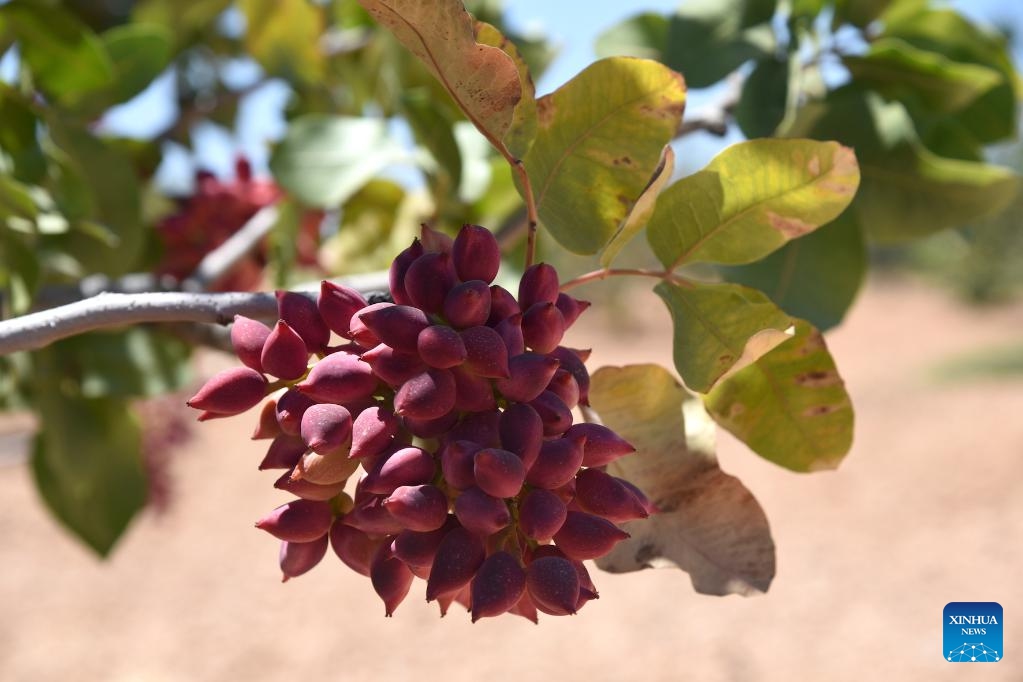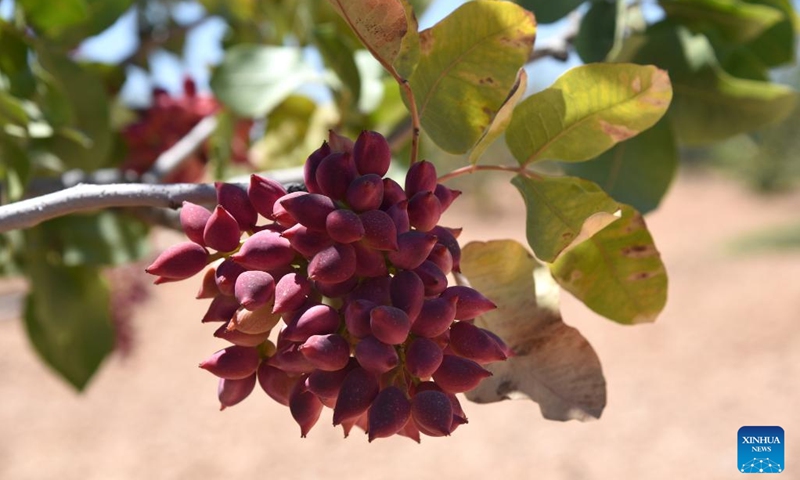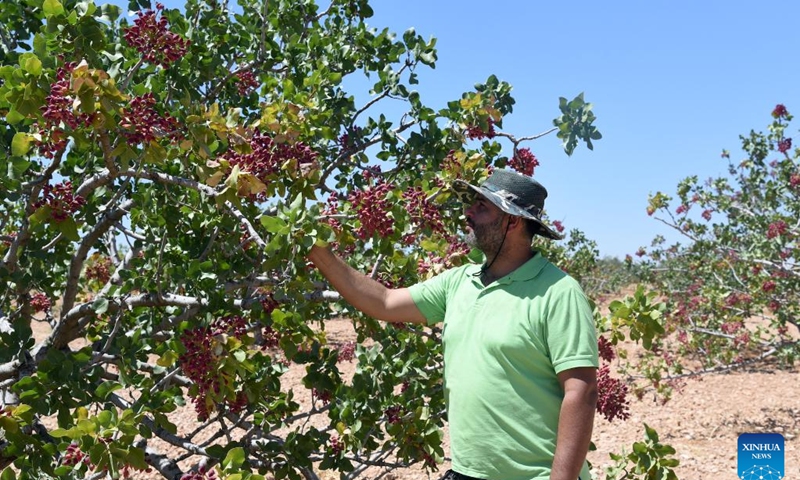
Lions are seen at Chobe National Park, northern Botswana, Aug. 21, 2022.(Photo: Xinhua)

Pistachio trees are seen in Maan of Hama, central Syria, Aug. 8, 2022.(Photo: Xinhua)

A farmer checks a pistachio tree in Maan of Hama, central Syria, Aug. 8, 2022.(Photo: Xinhua)
In the town of Maan in the central Syrian province of Hama, farmers and government officials are striving to restore the town's production of pistachio, an essential item in the Syrian exports list, to its pre-war levels in 2011, since years of control of the area by the rebels during more than a decade of a civil war had caused the death of large numbers of pistachio trees.
But what's worse, pistachio farmers in the country have another major obstacle to overcome: U.S. sanctions on Syria.
Jihad Muhammad, head of the Aleppo pistachio office at the Syrian Agriculture Ministry, told Xinhua that as a result of the sanctions, the government is unable to secure the fertilizers and fuel needed for farming, irrigation and pest control.
The Aleppo pistachio native to Syria, known in the Arab country as the "red gold" for its reddish shell and high prices, is planted mainly in the provinces of Hama and Idlib, and according to Muhammad, half of the production of pistachio in Syria is from Hama.
The official said preliminary estimates indicate that at least 600,000 pistachio trees, 500,000 of them in Hama, were damaged during the war, adding the actual numbers are believed to be much higher.
Before the war, Syria produced up to 80,000 tonnes of pistachio annually, a high number that has been sliced by half during the war, according to the Agriculture Ministry.
Muhammad said the initial production estimates for the pistachio crop this season in Syria are about 45,592 tonnes.
In his pistachio orchard in Maan, Firas Ibrahim, a farmer, also expressed his concern about securing fertilizers in the light of the U.S. sanctions.
"We are suffering immensely from the economic siege in terms of marketing the product, as well as securing fertilizers, which we don't have in Syria," he told Xinhua.
"Pistachio trees need 15 years to start producing, so changing our work is out of the question because our lives hang on the trees," he explained.
Yaser Abdul-Karim, a pistachio merchant, told Xinhua that the Syrian pistachio used to be exported to almost all around the world, but "the U.S. sanctions has obstructed the export process and badly affected the pistachio business."
Until 2013, Syria was still the world's fourth largest pistachio producer after Iran, the United States and Türkiye, according to the UN Food and Agriculture Organization.
